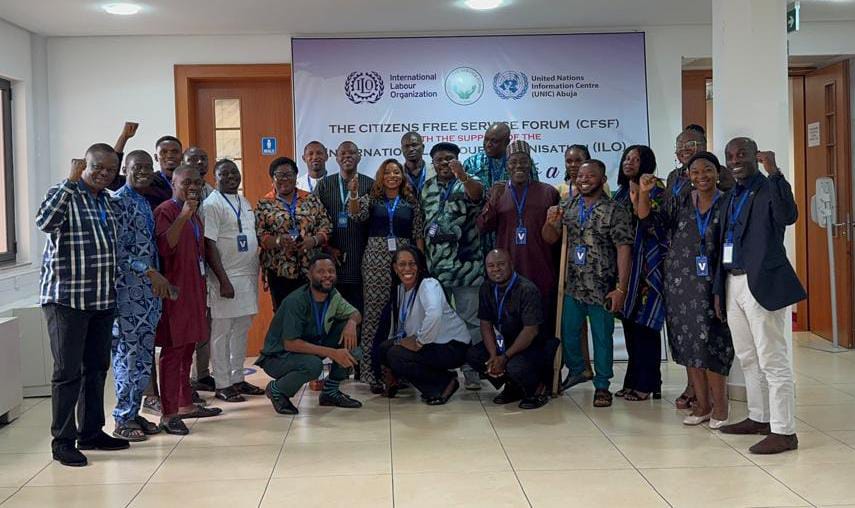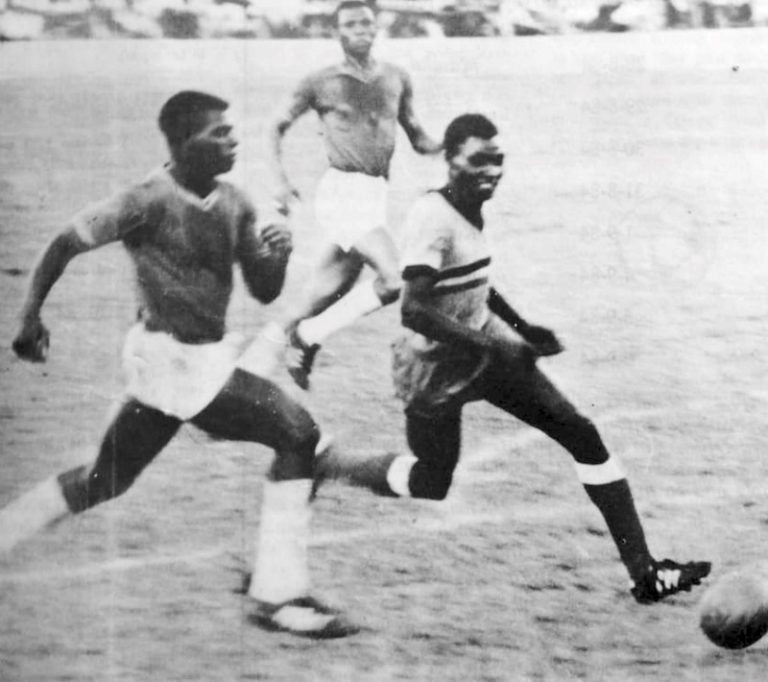
The International Labour Organization (ILO) has urged journalists to step beyond their typical confines and actively explore environmental hotspots if they are genuinely committed to producing impactful stories on climate and environmental issues that can drive citizen engagement and prompt policy changes.
This call to action was emphasized during a two-day training session on climate change and the just energy transition, organized by the Citizens Free Service Forum (CFSF) with support from the ILO.
The event took place on September 23-24, 2025, at the United Nations Building in Abuja, Nigeria’s capital, and brought together media executives alongside experts from various fields, including trade unions and development.
Comrade Sani Baba, the Executive Director of CFSF, highlighted the significance of the media in his opening remarks, emphasizing its role not only as a source of information but also as a facilitator of meaningful discussions that can lead to effective policy responses and actions. He was represented at the event by Mohammed Bomoi, Deputy Director of Programs at CFSF.
Comrade Sani pointed out that the media’s essential role in tackling the climate crisis and its repercussions for workers is underscored by Article 6 of the United Nations Framework Convention on Climate Change (UNFCCC), which prioritizes education and training. He noted that these resources empower governments, civil society, and the media to foster public participation and collaboration in innovative climate action initiatives.
Acknowledging that Nigeria, similar to other African nations and countries in the Global South, bears a significant burden from the impacts of climate change, he stressed the training’s goal of raising awareness, particularly regarding the less-highlighted effects of environmental degradation on workers.
During his presentation titled “The Science of Climate Change and the Evolution of the Struggle for Just Transition,” Comrade Echezona Asuzu, Coordinator of the Nigeria Labour Congress (NLC) Climate Change Program, traced the origins of the climate crisis back to the industrial revolution of the late 18th and mid-19th centuries.
He discussed how the rise of machinery replaced human labor and how the demand to feed growing populations led to exploitative practices that disrupted the natural balance and significantly increased greenhouse gas emissions. This reliance on fossil fuels has intensified over time, culminating in a global call for an end to the activities that perpetuate the climate crisis.
He noted that the push for climate action began to yield results with the adoption of the Kyoto Protocol in 1997, an international treaty under the United Nations Framework Convention on Climate Change (UNFCCC), which came into force in 2005. This protocol committed countries to reduce greenhouse gas emissions and laid the groundwork for climate initiatives, incorporating mechanisms such as the Clean Development Mechanism (CDM) to help achieve emission reduction targets.
Subsequent to the Kyoto Protocol, the Paris Agreement emerged as a legally binding international treaty on climate change, adopted in 2015. Its primary goal is to limit global warming to well below 2 degrees Celsius, ideally to 1.5 degrees Celsius, compared to pre-industrial levels.
The Paris Agreement also mandates that countries develop their own climate action plans, known as Nationally Determined Contributions (NDCs), which are expected to become progressively more ambitious over a five-year cycle. In his discussion on Contemporary Environmental Degradation and Climate Change Issues in Nigeria, Philip Jakpor, Executive Director of the Renevlyn Development Initiative (RDI), pointed out that when journalists think of climate change, they often envision cyclones, hurricanes, forest fires, desertification, and melting glaciers.
He emphasized that most indigenous media reports typically focus on climate impacts occurring abroad, while neglecting the critical climate-related developments within Nigeria. According to Jakpor, several significant climate issues in Nigeria remain underreported or unreported. These include the alarming shrinkage of Lake Chad, which decreased from 25,000 square kilometers in the 1960s to less than 1,500 square kilometers today; the Great Green Wall initiative aimed at creating resilient ecosystems across 11 states in Nigeria, which has yet to see meaningful implementation; and the ongoing encroachment of the Atlantic Ocean on the Ayetoro community in Ondo State, causing significant land loss and displacement.
Philip Jakpor expressed concern that the issues he highlighted have serious implications, including loss of livelihoods and lives, displacement, food security challenges, and the potential for corruption. He suggested that journalists could uncover the depth of these problems by investigating the substantial funding that Nigerian states receive from the Ecological Fund and their budgetary allocations for addressing flooding and other climate-related issues.
He connected the climate crisis to industrialization models imposed by the Global North, which rely predominantly on fossil fuel extraction. In addition to this, he delivered two more presentations: *Basics of Reporting Climate Issues in Nigeria* and *The Art of Storytelling*, which provided the trainees with essential steps for investigating and crafting compelling climate and environmental stories.
Building on Jakpor’s insights, Elijah Iklaga presented on *Interpreting Global Politics for Climate Justice in National Realities*. This presentation emphasized the need to implement policies that address the disproportionate impacts of climate change by prioritizing adaptation, mitigation, and financial support for vulnerable communities and countries in the Global South. David Boys, Deputy General Secretary of Public Services International (PSI), also shared his thoughts, advising the trainees to produce thoroughly researched reports that can guide policymakers in creating evidence-based laws. He emphasized the importance of robust public institutions in regulating corporate activities, particularly against those companies that possess the financial power to undermine systems.
At the conclusion of the event, Stephen Agugua, an ILO representative, awarded certificates to the trainees, expressing optimism that the training would enhance the quality of their climate and environmental reporting. Agugua reaffirmed the global organization’s commitment to collaborating with the media to highlight the largely overlooked impacts of climate change on frontline communities and the workplace, which are often neglected in mainstream news coverage.



